Press Release
Virginia Stands Out for Operating a Corrections System Without the Use of Solitary Confinement
May 10, 2018
RICHMOND — When it comes to state prisons, Virginia stands out for operating a corrections system without the use of solitary confinement. As states around the country grapple with the issue of maintaining safety when working with violent inmates while also giving those inmates a chance at reform, Virginia has been recognized by Governor Northam as well as the U.S. Department of Justice for its success in limiting the use of long-term restrictive housing for offenders.
The Virginia Department of Corrections serves as a national model for the limited use of restrictive housing. In Virginia, seriously mentally ill offenders can spend no more than 30 days in restrictive housing and it is exceedingly rare for offenders to be released to the community from long-term restrictive housing.
The Governor’s office released the following statement today regarding the success Virginia has seen in its prison reforms. "Under the leadership of Director Harold Clarke, Virginia has become a nationally-recognized leader in reforms that reduce the use of restrictive housing and ensure that inmates are properly prepared to succeed in society when they leave restrictive housing or any corrections environment. Governor Northam supports the Department of Corrections in its mission to align its incarceration practices to most effectively serve the interests of public safety, inmates and taxpayers."
The Virginia Department of Corrections (VADOC) works to address the fact that those with mental health issues struggle with positive reentry and seeks to ensure that preparation for release is robust and linkage to the community is strong. Correctional officers are trained to use Corrections Crisis Intervention Teams, Mental First Aid, and Trauma Informed Care.
In Virginia, only one person was released from long-term restrictive housing to the community in 2017. Three people were released from long-term restrictive housing to the community in 2016. In 2015, that number was four.
Since the launch the department’s award winning Administrative Step-Down Program in October of 2011, the VADOC has steadily made adjustments and improvements to reduce the use of restrictive housing while enhancing lasting public safety.
Based upon the success the Administrative Step-Down Program had on long-term restrictive housing, in 2014 the department developed a 70-member task force to address the use of short-term restrictive housing and develop system-wide strategies to effectively motivate offenders toward successful reintegration into the general prison population.
In 2016, the U.S. Department of Justice (DOJ) highlighted Virginia’s success in limiting the use of restrictive housing in the DOJ’s “Report and Recommendations Concerning the Use of Restrictive Housing.” The report noted Virginia’s significant reforms in the area of restrictive housing, and further identified that Virginia was looking at ways to apply the Step Down Program system wide. The Department has implemented, as recommended by the DOJ, a program to divert offenders with serious mental illness from restrictive housing. The VERA Institute of Justice has identified Virginia as one of the leaders in the nation in restrictive housing reform, and VADOC was recognized by the Southern Legislative Conference for its Segregation Step Down program at Red Onion State Prison.
In April of 2016, the department launched its Restrictive Housing Pilot Program. The pilot program created a unified approach to reduce the need for restrictive housing while at the same time decreasing risk, increasing safety and enhancing the likelihood of a successful return to general population. The program was implemented statewide on May 1, 2018. The program addresses improved conditions of confinement in the form of individual and group programming, methods to earn good time credit, additional recreation, increased daily out of cell opportunities, behavioral goals for progression out of restrictive housing, and increased reviews by a multi-disciplinary team.
More information on the VADOC can be found at www.vadoc.virginia.gov.
